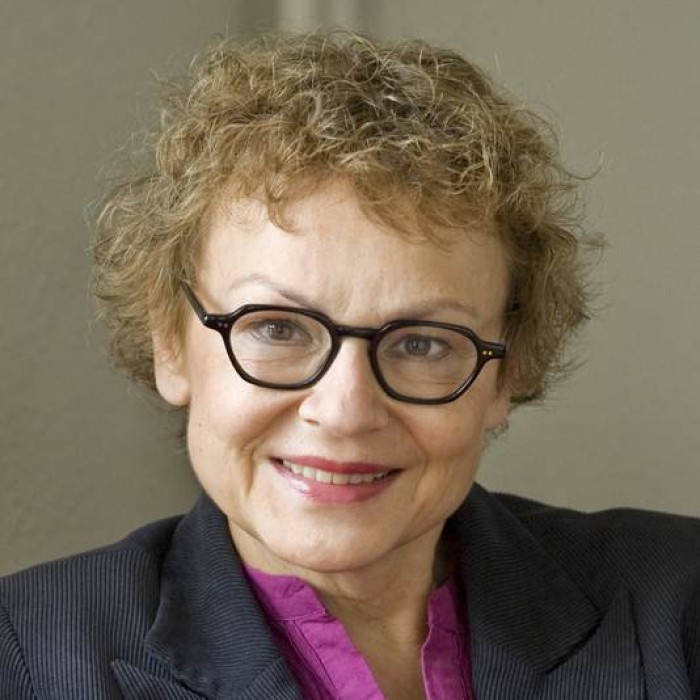It is a great privilege to have the occasion to offer a laudatio in order to honour Barbara Czarniawka's achievements right here in the middle of her EGOs friends and in the city of Goteborg for which she feels so much attachments (and I am awfully sorry not to be able to deliver this laudatio in person, thanks to my spokesperson for incarnating my voice).
In spite of the fact that Barbara is at the heart of EGOS, there is nobody less egotistic than her: she shares her insight, advices, jokes, experience and pictures with everyone who cares to ask her. EGOS for her is obviously a very altruistic field of research. The best proof is that she shared with me, who was completely ignorant of the field of organization science, her passion for this domain – to the point that I had to become Dean of research of my school in order to follow her lead and understand what the hell an organisation is... So thanks Barbara, if I spend long hours in tedious and tense meetings, managing people -and especially the worst people to manage, I mean academics – it is largely thanks to you! And also thanks to you that I hold a degree in economics (a honorary one, that is) from this university (Barbara is very generous also in handling honorary degrees...).
But Barbara's generosity has many other much more important consequences: she has marvelous students that she has been able
to train in the most exacting feel for the details of the situation and of the way this situation is narrated – a key
feature, as you all know, of her understanding of the organising action nets. I know that first hand since I had twice the
occasion to work with her students here in Goteborg and every time I got more and more interested in this open and loose field
of organization research.
But of course her main generosity goes to the organisations she studies, and this is very rare. Instead of using the critical
stand that was so dominant at the time of her formation or taking the management posture that was going to dominate the practitioners,
Barbara invented what could be called a form of critical generosity (and no doubt about that: critical, even acerbic, she
can be – impossible to ignore the devastating Polish humour in her style...), but it is not a critique of institution
per se.
On the contrary, she has a refreshing passion for everything studied, from corporations to newsrooms, from labor shop floors to city planning offices. It is hard to see what she would not find interesting to study: wherever there is an action net, Barbara is as alert as a pack of hunting dogs, barking, sniffing, licking and running...
But what is she running after? Hum, this is not as easy to say. Obviously description: I share this tropism for description
and if someone said I was a ''serial redescriptor'' – don't confuse this with 'serial killer' – I think Barbara
too deserve this label as well. But why does she want to indulge in serial redescription? Why is it so important? Because
of the shadow thrown upon all action nets by the other branch of the alternative: serial calculators – and those guys
are much closer from the psychological make up of 'serial killers'...
Between description and calculation one has to choose. Or rather what cannot be calculated, for instance organization practices,
can be described, and even better, redescribed since the actors themselves are constantly narrating what they are doing in
order to make sense of what they are doing. Such is, in my limited view, what Barbara is after: is there a research and writing
strategy that may follow the tasks of description and redescription necessary for the actors to manage themselves and –
this is the crucial critical and generous aspect – to resist the constant formatting and reformatting of the calculators?
It is not enough to say that organisations have to be ''embedded'' in social practices, because the ''social'' as Peter Sloterdijk
might say ''is too big a pond for organisations to swim in it''.... What counts for Barbara is to open an alternative to the
amazing weight that the formatting disciplines – and they have to be called ''disciplines'' not ''sciences'' – impose
on organisations (be they from the private or from the public sectors ). And the great paradox of her career is that she wants
to do that inside the very outfits out of which formatting business practices and so-called gouvernance ''best practices'' are produced – namely business administration schools.
This is what is so interesting and where the notion of critical generosity maybe most useful to understand her work: to be
critical at a distance would be of no interest – and no risk; what is really interesting (and risky), is to be critical
in proximity with the protagonists she wants to influence. This is the greatest paradox of all: whereas economics claim to
be a science when it is in fact a discipline – I mean in the sense of a training, a formatting, almost a set of spiritual
exercises –, the study of organisations is much more of a science because of its descriptive abilities – and yet
economics always win against the fields of organisation. Barbara has done her best to explore this paradox and to redress
this inbalance. It is thus entirely fitting that the members of EGOS (I guess that, thanks to her, I may count as an honorary
member of your society) have assembled here tonight to honour Barbara. Let us applaude Barbara Czarniawska and drink to her
achievements.

